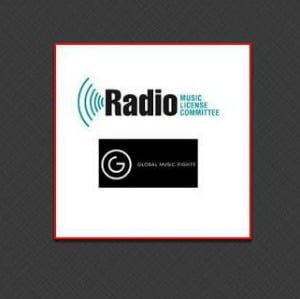
In the GMR/RMLC battle, things have been quiet for the past week. After firing off what appeared to be daily nasty e-mails at each other, it seems both organizations are in a quiet period for now. It’s important to note: You have until January 31 to decide if you want to accept an interim license to air GMR’s recordings or face massive fines that could cripple your business.
Playing a GMR song without a license could cost you $150,000 per song. If you try to remove all GMR recordings, you’ll have to remember that includes music in commercials, syndicated programming, or any other programming that might be using GMR. Are you aware of all of those recordings? And what about the RMLC? Do you have confidence in their negotiations with GMR? We’ve spent the past week reaching out to large and small market radio executives to get their feedback on the GMR issue. Here’s what they had to say.
JVC CEO John  Caracciolo says any time a group of artists or representatives of artists get together and try to squeeze more dollars from our industry, it concerns him. “There is only so much money radio owners can spend, and between ASCAP, BMI, SESAC, SoundExchange, it is just out of control. Now you bring in this upstart music licensing company GMR, and you still have the HR 848 and the Performance Rights Act hanging out there, and as an owner, I just throw my hands up and say I will just go all talk on all of my stations because I can’t afford another hand in my pocket.
Caracciolo says any time a group of artists or representatives of artists get together and try to squeeze more dollars from our industry, it concerns him. “There is only so much money radio owners can spend, and between ASCAP, BMI, SESAC, SoundExchange, it is just out of control. Now you bring in this upstart music licensing company GMR, and you still have the HR 848 and the Performance Rights Act hanging out there, and as an owner, I just throw my hands up and say I will just go all talk on all of my stations because I can’t afford another hand in my pocket.
“These guys need to remember, pigs get fat, hogs get slaughtered. As for the RMLC, I never like anyone negotiating for me. Call me crazy, but nobody has my best interest in mind but me. I hate to pay things that I don’t think benefit me. I think the RMLC need to do a better job of keeping broadcasters informed of their actions and plan, and not just iHeart, Cox, CBS, and Cumulus. There are more of us independent broadcasters that feel the squeeze. Be attentive to us.”
NRG CEO Mary Quass tells Radio Ink there’s a lot of discussion taking place about the GMR issue, and the issue does concern her. “Currently there seem to be a lot of questions surrounding what this means for our industry, the relationship we have with the PROs, and  what will happen in the future to current and potentially future organizations that we have had a symbiotic relationship with in the past. The fact that the PROs are facing the possibility of additional fragmentation and what that means for our industry is very much a concern.”
what will happen in the future to current and potentially future organizations that we have had a symbiotic relationship with in the past. The fact that the PROs are facing the possibility of additional fragmentation and what that means for our industry is very much a concern.”
When asked if she has confidence that the RMLC can help the radio industry get a reasonable deal, she says yes. “The RMLC was formed to be able to provide a voice for our stations that we do not have on an individual basis, and has been able to fulfill that role well for us in the past. The fact that we have and continue to provide the support of the thousands of radio stations is testament to that. At this point, the RMLC is advocating for radio as agreed and are asking the right questions.”
Mike Tarter at Forcht Broadcasting tells Radio Ink he’s taking this issue with GMR very

seriously. “It is extremely worrisome for all small market broadcasters. Yes, I have faith in the RMCL. Cautiously optimistic that a reasonable, rational resolution will be made.”
Lee Perryman is with Marble City Media in Sylacauga, AL. He says the GMR issue scares him. “My two concerns: (1) there’s no definitive list, and there’s fractional representation, and I don’t know how we can comply when we don’t have a clear and definitive understanding of the boundaries, and (2) even if we sign the interim agreement, it’s also not definitive — we’d be committing to an unknown retroactive obligation as well! What a mess.”
Connoisseur CEO Jeff Warshaw says his concern is that it appears it will cost radio more money in total. “There doesn’t seem to be a corresponding decrease in other licenses.”
A final note from and about the RMLC. The organization has always said radio stations are free to negotiate their own deal with any performing rights organization and radio stations are not bound to accept any recommendation from the RMLC. RMLC attempts to help thousand and thousands of stations by being a conduit or spokesman/representative for the industry. In the case of GMR, iHeartMedia and Townsquare have negotiated their own deals. The RMLC has no idea what those deals involve, as they are confidential.








The big question now, is what do we do about this issue? The other question is, what about all the small streaming radio stations, and carriers . What about YouTube, do they have to abide by the GMR ?